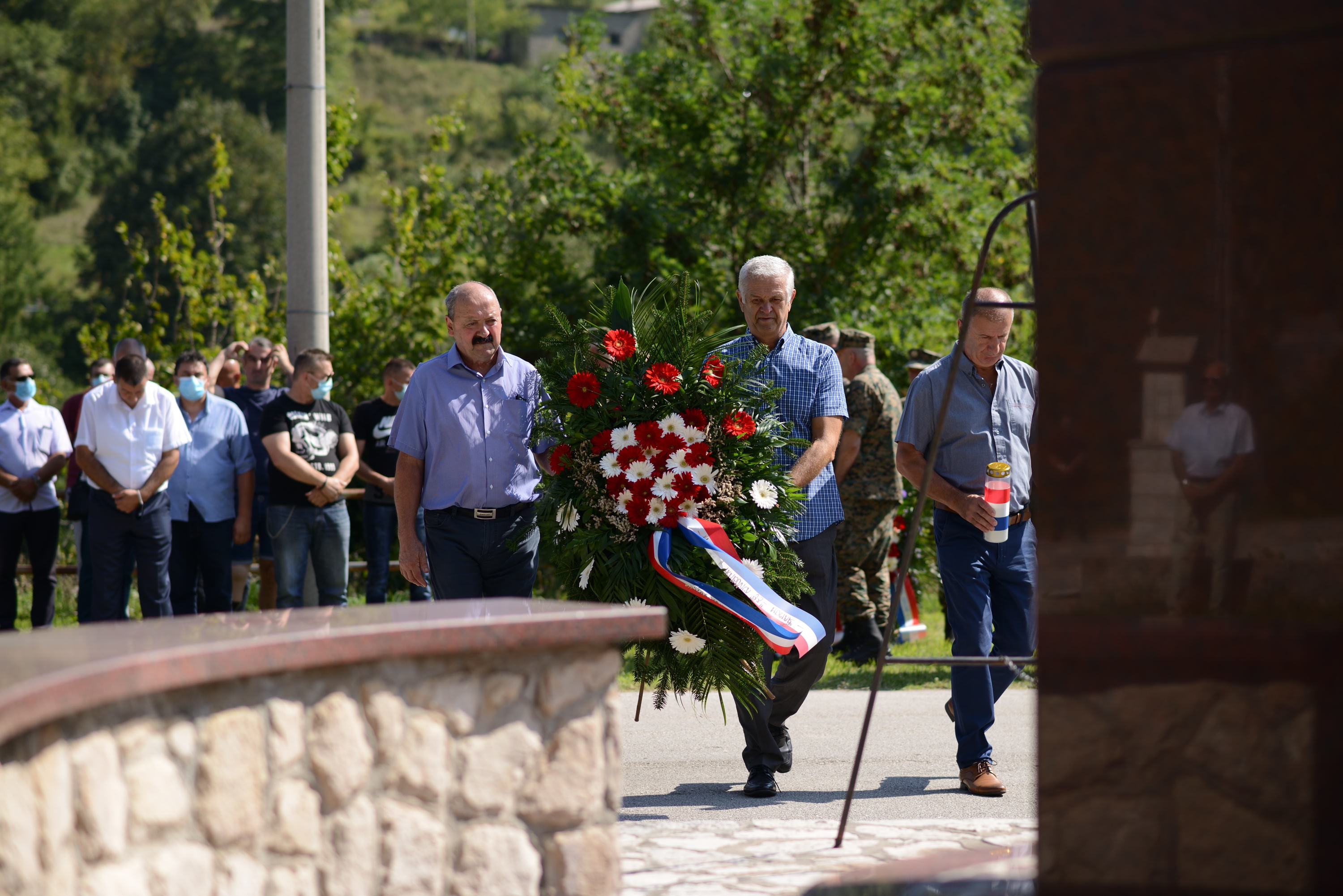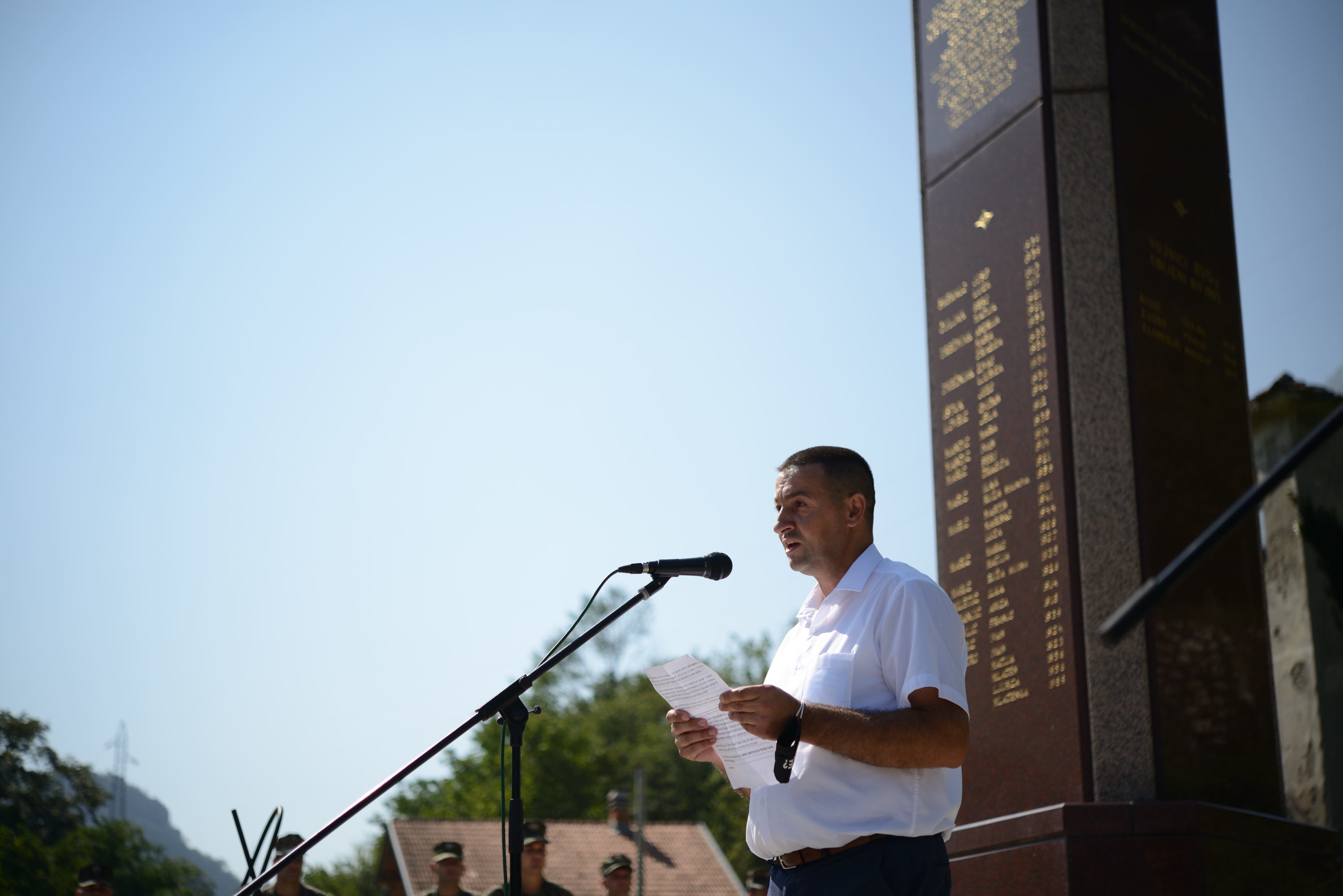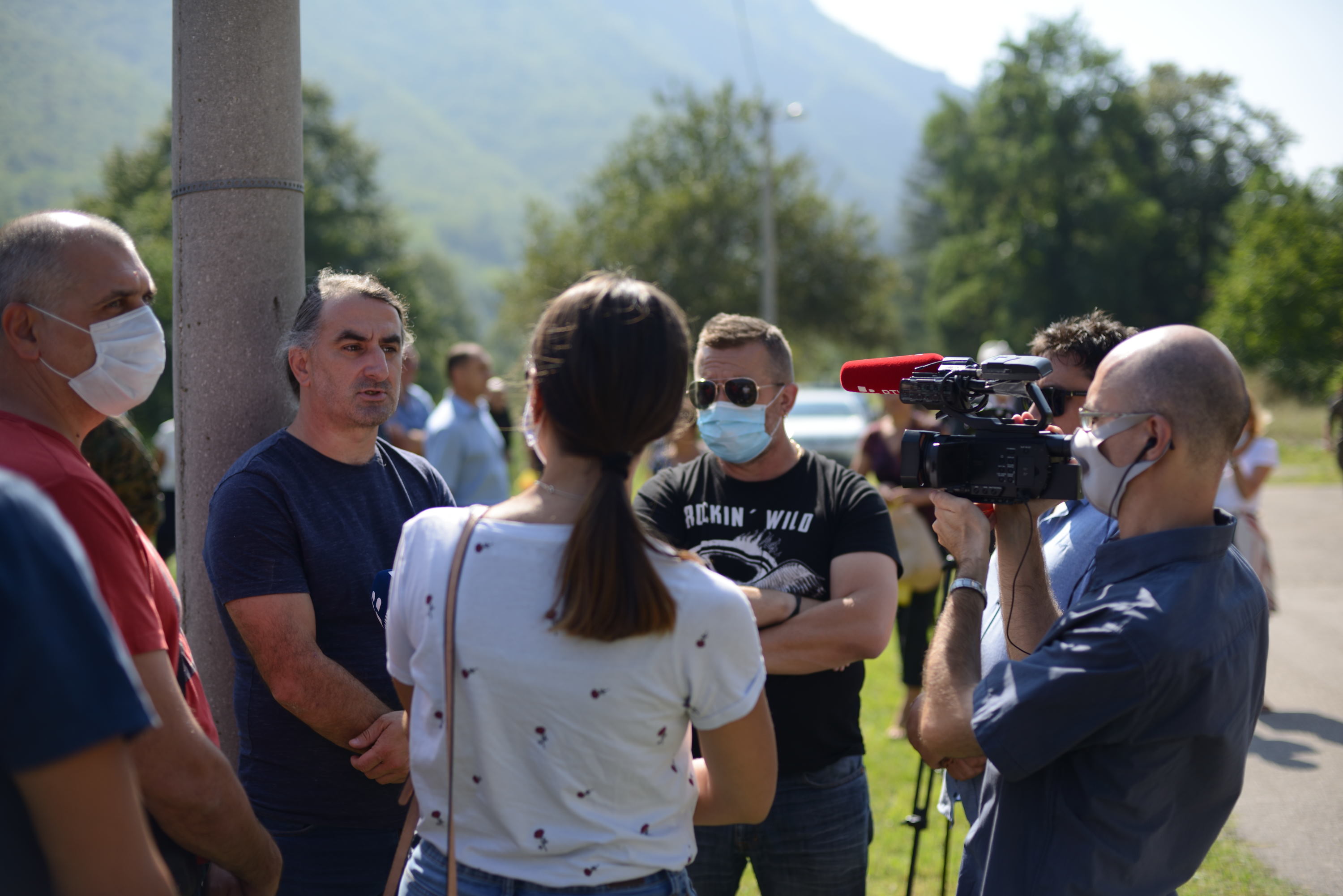War veterans, former members of the Army of RBiH, HVO, HV, VRS and VJ laid flowers and paid their respects to civilians killed in Grabovica. Just like last year, with their presence in Grabovica on 9 September this year, the veterans wanted to express mourning for the killed civilians, offer their support to families of victims and call on institutions to invest more effort into finding the remains of the victims and in prosecuting those responsible for this war crime.
A group of civilians were killed on 8 and 9 September 1993 in Grabovica, a village located between Jablanica and Mostar. According to the Association of Croat Victims “Grabovica 93”, over those few days in September 1993, 33 civilians were killed and their remains have mostly not been found to this day. Five members of the Army of RBiH have been convicted of this war crime before the courts in Bosnia and Herzegovina. According to the court judgements, the civilians were killed in a particularly brutal way and among the victims was a four-year-old girl, Mladenka Zadro, killed in her mother’s arms. According to the findings of the Hague Tribunal, one of the people killed was Ivica Čavlović, a member of the Army of RBiH who had stood up against the killing of civilians that fateful September 1993.

“What we consider important, our aim in visiting places such as this one is to point to all the suffering that has happened. We bring together war veterans from the wider region, and they also feel a duty and a responsibility to visit places like this one. We believe that by coming to these places and sharing our experience, we can show how war is a destructive situation and we can learn to distance ourselves from that violence and send future generations the message that it must not happen again. Grabovica is another one of these places where civilisation collapsed, where a terrible war crime was committed, and those of us continuing to live in this region must deal with this fact, we must condemn the crime, call it by its real name and work to make sure it never happens again,” said Amer Delić, a war veteran of the Army of RBiH and member of the Centre for Nonviolent Action.
He added that it was important for us to return to dialogue and trust building in order to ensure that all problems and conflicts in society are resolved peacefully.
“All these places serve as warnings, wherever we go, we run across horrific human fates, and if we don’t learn from this, then what is the point… There is always an alternative to war and suffering, we just have to make the effort. I also feel the need to call on the institutions to prosecute all war crimes and help all families looking for their loved ones,” Delić said.
Josip Drežnjak, president of the “Grabovica ‘93” Association pointed out that 27 years after the crime was committed, the families are still looking for the remains of 17 victims and that there has been no progress in the prosecution of those responsible.
“It is a painful issue for us, even just the number of bodies we are looking for, because we only found two complete bodies, and we have a situation where only a single bone was found that we identified and buried and that’s that,” Drežnjak explained, adding that there was clear documentary evidence of who participated in the crime and the institutions and individuals involved in removing the bodies.

“I view the visit by war veterans in a positive light. Without truth, without being able to look each other in the eye, if I don’t respect another’s victims, then I cannot respect my own. And that is my message, we cannot conceal things and the punishments must be equal. If someone committed rape, whoever he is, my brother, a Serb, Bosniak or Croat, the punishment must be the same and the perpetrator must be held accountable,” Drežnjak said.
Since 2008, the peace organisation Centre for Nonviolent Action, with offices in Sarajevo and Belgrade, has been organising visits by groups of war veterans from Croatia, Serbia and BiH to sites of atrocities against civilians and soldiers committed in the recent war and to official commemorations honouring victims, organised by local and state authorities and victims’ associations.
Mirko Zečević Tadić, a veteran of HVO from Brčko, explained how he came to Grabovica today with a group of war veterans, just like he did last year, in order to pay his respects to the victims.

“We have come to show that we can make this step towards a better future, especially for the future generations. We have come to send the message that war should not happen to anyone again. We shouldn’t judge by individual wrongdoers, especially those who committed war crimes, such people should be brought to face justice so that the rest of us can go on with our normal lives,” Zečević Tadić said.
Under the organisation of the Centre for Nonviolent Action, veterans from the region have attended commemorations in BiH in Gornji Vakuf, at Site 715 near Zavidovići, in Stog near Vozuća, in Novi Grad/Bosanski Novi, Sanski Most (Hrastova Glavica), Sijekovac near Brod, Laništa near Brčko, Trusina near Konjic, Stupni Do near Vareš, Ahmići in Vitez, Skelani near Srebrenica, Korićanske stijene, Zecovi and Briševo near Prijedor, and in Serbia in Grdelička klisura near Leskovac, Varvarin near Kruševac, Aleksinac, Prijepolje, as well as in Croatia in Pakrac, Varivode and Gošić near Knin.